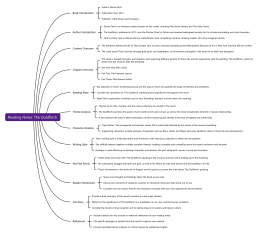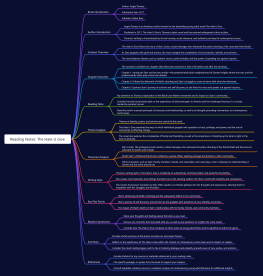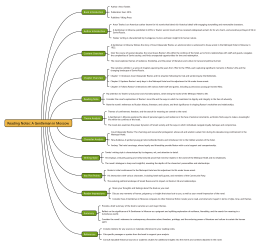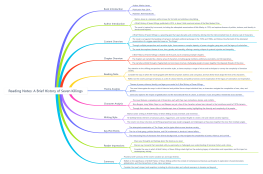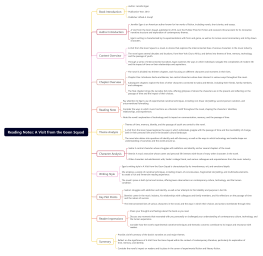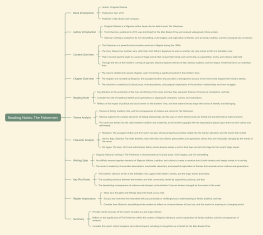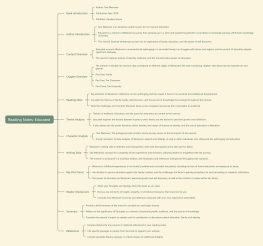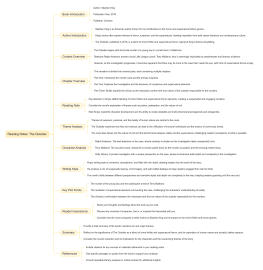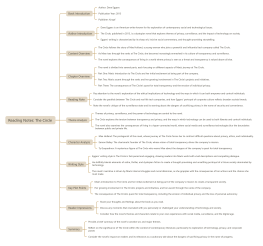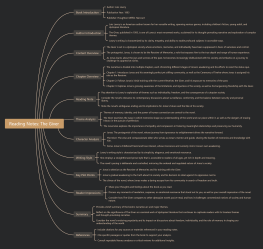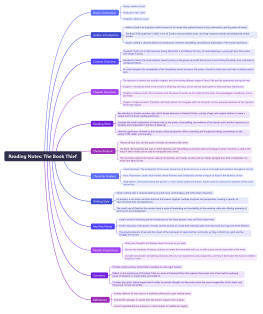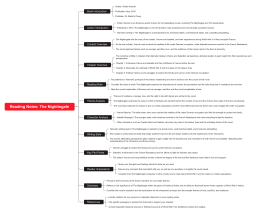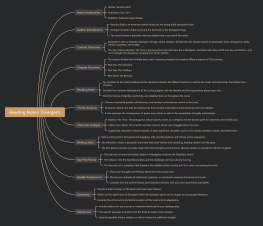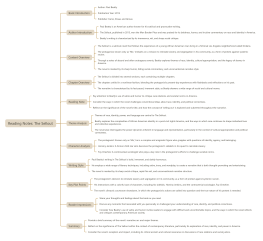Homegoing-Yaa Gyasi: Book Summary
2024-07-19 15:46:05 409 0 Report 0
0
Login to view full content
'Homegoing' by Yaa Gyasi, published by Knopf in 2016, is a profound exploration of the legacy of slavery through the interconnected stories of two half-sisters, Effia and Esi, and their descendants. Spanning over three centuries, the novel traces the divergent paths of Effia, who is married off to a British slave trader, and Esi, who is sold into slavery and transported to America. Through fourteen chapters, Gyasi alternates between Ghana and America, providing a panoramic view of the African diaspora and the complexities of identity, family, and heritage. The novel delves into themes of slavery, colonization, racism, and the enduring impact of trauma, offering insights into the diverse experiences of characters across generations. Gyasi's lyrical and evocative writing captures the voices and perspectives of characters from different eras and cultures, creating an immersive storytelling experience marked by vivid imagery and emotional resonance. Key plot points include the choices and experiences of Effia and Esi, the struggles of their descendants under slavery, colonization, and segregation, and the exploration of intergenerational trauma and resilience. The novel invites readers to reflect on the thematic connections between characters' experiences in Ghana and America, the search for identity and belonging, and the ongoing impact of historical injustices. 'Homegoing' is a significant contribution to African diasporic literature, confronting difficult truths about history and society while celebrating resilience, love, and the power of storytelling. Through its rich cast of characters and profound thematic exploration, the novel offers a compelling narrative that resonates deeply with contemporary conversations about race, heritage, and the legacies of slavery.
Other creations by the author
Outline/Content
Book Introduction
Author: Yaa Gyasi
Publication Year: 2016
Publisher: Knopf
Author Introduction
Yaa Gyasi is a Ghanaian-American author known for her debut novel, Homegoing.
Homegoing, published in 2016, explores the legacy of slavery through the interconnected stories of two half-sisters and their descendants.
Gyasi's writing is acclaimed for its depth, emotional resonance, and exploration of themes related to identity, family, and history.
Content Overview
Homegoing spans over three centuries and follows the lineage of two half-sisters, Effia and Esi, born in different villages in 18th-century Ghana.
Effia is married off to a British slave trader, while Esi is sold into slavery and transported to America.
The novel traces the experiences of their descendants in Ghana and America, exploring themes of slavery, colonization, racism, and the enduring impact of trauma.
Through a series of interconnected narratives, Gyasi illuminates the complexity of the African diaspora and the search for identity and belonging.
Chapter Overview
Homegoing is divided into fourteen chapters, each focusing on a different character in Effia and Esi's bloodline.
The chapters alternate between Ghana and America, spanning generations and offering insights into the diverse experiences of the characters.
From the Gold Coast to the plantations of the American South, the novel explores the intersections of race, class, and culture across continents and centuries.
Reading Note
Pay attention to the thematic connections and contrasts between the characters' experiences in Ghana and America.
Consider the ways in which trauma and resilience are passed down through generations, shaping the lives of Effia and Esi's descendants.
Reflect on the novel's exploration of identity and the search for belonging, as characters navigate the complexities of race, culture, and heritage.
Theme Analysis
Themes of family, heritage, identity, and the legacies of slavery are central to Homegoing.
The novel interrogates the ways in which historical injustices continue to reverberate through time, impacting the lives of individuals and communities.
Gyasi also explores the complexities of race and cultural identity, highlighting the fluidity and resilience of African and African-American cultures.
Character Analysis
Effia and Esi: The half-sisters whose divergent paths set the course for their descendants' lives.
Kojo, Ness, H, Akua, Yaw, Marjorie, and others: The novel features a rich cast of characters, each grappling with their own struggles and striving for agency and freedom.
Through their stories, Gyasi offers a panoramic view of the African diaspora and the complexities of identity and belonging.
Writing Style
Gyasi's writing in Homegoing is lyrical, evocative, and emotionally resonant.
She skillfully weaves together multiple narrative threads, capturing the voices and perspectives of characters from different eras and cultures.
The novel is marked by its vivid imagery, immersive storytelling, and profound exploration of the human condition.
Key Plot Points
Effia and Esi's divergent paths and the impact of their choices on future generations.
The experiences of characters living under slavery, colonization, and Jim Crow segregation, and their struggles for freedom and dignity.
The novel's exploration of intergenerational trauma and resilience, as characters seek to reconcile with their past and forge their own paths forward.
Reader Impressions
Share your thoughts and feelings about the book as you read.
Discuss any moments that resonated with you personally or challenged your understanding of history and identity.
Consider how Homegoing contributes to ongoing conversations about race, heritage, and the legacies of slavery in contemporary society.
Summary
Provide a brief summary of the novel's narrative arc and major themes.
Reflect on the significance of Homegoing within the context of African diasporic literature, and its exploration of the enduring impact of slavery and colonization.
Consider the ways in which the novel invites readers to confront difficult truths about history and society, while also celebrating resilience, love, and the power of storytelling.
0 Comments
Next page
Recommended for you
More

